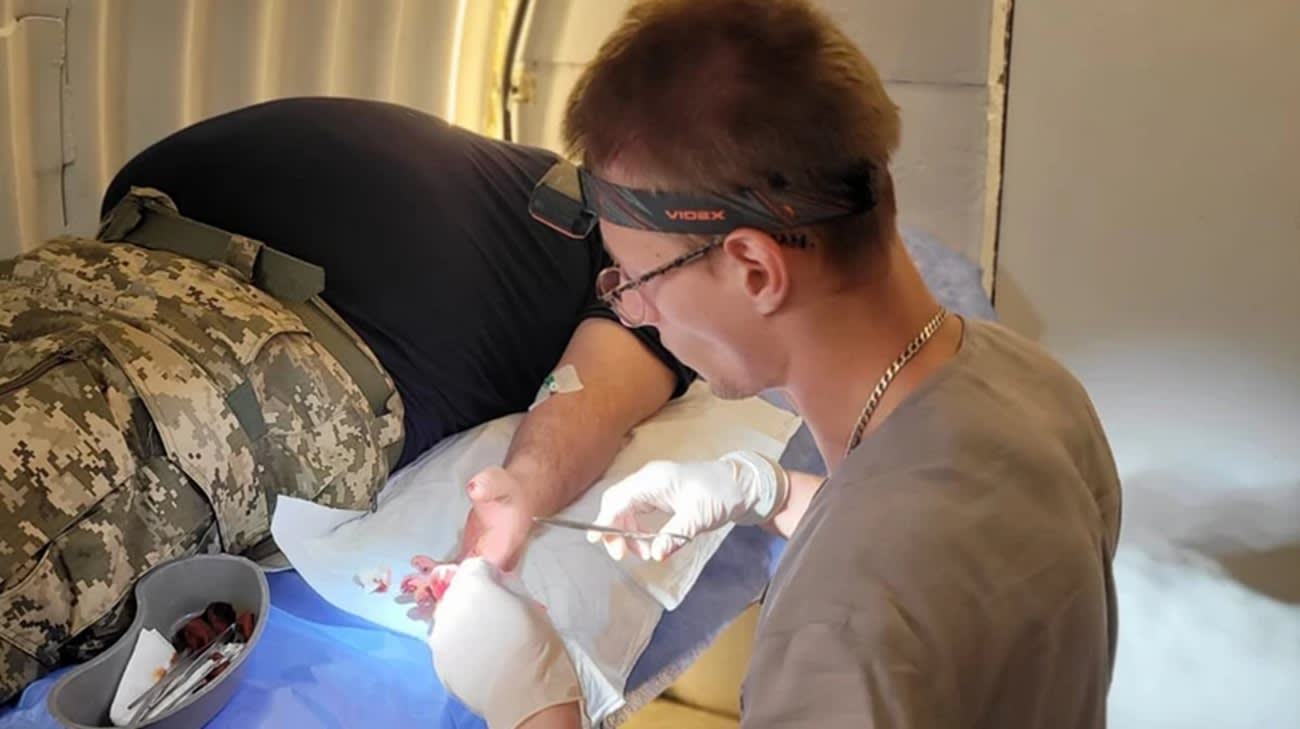"I Want Guys Not to Suffer": The Story of a Pediatric Traumatologist Who Now Saves Wounded Soldiers – Photo

A Doctor’s Journey from Pediatric Trauma to the Front Lines
Nikita Nesterov, a pediatric traumatologist from Vinnytsia Oblast, has made a significant shift in his career. Instead of continuing his work in the rear, he now serves as a medical officer near the front line, where he provides critical care to wounded soldiers. His decision to move closer to the action was driven by a simple yet powerful belief: “I went where I was needed most.”
From an early age, Nikita had a deep interest in medicine. As a child, he often visited the emergency room, which left a lasting impression on him. While those visits were painful, the professionalism and calm demeanor of the doctors inspired him to pursue a career in pediatric traumatology. He quickly realized that this field was far from easy. “If anyone thinks that pediatric traumatology is an easy job, they are very much mistaken,” he notes.
At the Vinnytsia Oblast Children's Hospital, Nikita treated children with severe injuries resulting from traffic accidents. When the full-scale war began, his responsibilities expanded. He started treating patients with shrapnel wounds, a challenging shift that required both technical skill and emotional resilience.
One of the most memorable cases involved a boy named Roman Oleksiv, who survived a missile strike in Vinnytsia on July 14, 2022. Roman received immediate first aid at the hospital and wore a mask for two years to prevent scarring on his face. This experience, along with others, helped prepare Nikita for the psychological demands of military service.
Working with traumatized children gave him a unique perspective on the realities of trauma. “I was already prepared for blood and wounds,” he says. He also recognized a growing need for specialists in his field within the military. This realization led him to sign a contract and become a military medic.
His journey into the military began with training at the military department, where he earned the rank of junior lieutenant in the medical service. In 2024, he joined the Military Medical Clinical Centre of the Central Region. Initially, he worked in hospitals treating the wounded, but he soon moved to one of the medical units stationed near the front line.
Nikita's first assignment took him to a mobile surgical hospital near Zaporizhzhia. The hospital served as a critical point for evacuating the wounded from stabilisation points and directly from the battlefield. “In civilian medicine, there is sometimes confusion, but here everything works like clockwork,” he shares.
The hospital was located underground, which provided a sense of safety during constant shelling above. “It's psychologically easier to work there,” he explains. Over time, he and his colleagues adapted to the environment, becoming desensitized to the sounds of explosions, much like how people living near a railway eventually stop noticing the noise.
One of the most impactful experiences for Nikita was treating a young man who had been injured by a homemade drone. Half of his face was severely damaged, but he remained conscious and breathing. The medical team stabilized his condition, and Nikita recalls the shock of seeing such a severe injury while the patient was still able to speak. “You act without losing your concentration,” he says.
After completing his rotation, Nikita returned to Vinnytsia for a short break before heading back to the front line. He credits his family's support for helping him cope with the psychological challenges of his work. However, he feels a strong pull toward the front, where he believes his skills are most needed.
“It's addictive. I want to go back. Because that's where you're needed,” he says. He is currently preparing for his next mission, though he doesn’t know exactly where it will be. His hope is that there will be as few patients as possible, because “I don't want the guys to suffer.”
Nikita’s story highlights the dedication and sacrifice of medical professionals who choose to serve in the most dangerous areas. His journey from pediatric trauma to the front lines exemplifies the commitment to saving lives, no matter the cost.
Post a Comment for ""I Want Guys Not to Suffer": The Story of a Pediatric Traumatologist Who Now Saves Wounded Soldiers – Photo"
Post a Comment